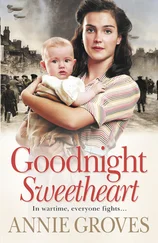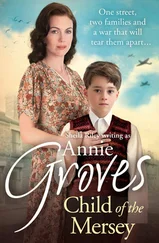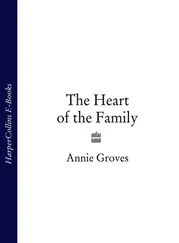When Callum had hinted that he had equally strong feelings for her and that they had a future together, Sally felt she was the happiest girl in the whole world. But then her mother had become fatally ill with cancer. Sally had been devastated. Morag had insisted on helping Sally to nurse her mother, sharing the duty of care with her, just, so Sally had naïvely thought, as though she too were a daughter of the family. Sally had also believed that Morag’s care for her father had simply been the care of a loving daughter. But then her eyes had been brutally opened when, after her mother’s death, she had found Morag and her father in an embrace that had shown her quite clearly the true nature of their relationship.
Worse was to follow. Sally’s father and Morag were to marry, and Callum, far from condemning his sister, had taken Morag’s side, accusing Sally of being unfair to both her father and his sister.
Sally had left Liverpool in the grip of almost unbearable anger and misery. Work, the kindness of Olive, her landlady, the friendship of Tilly and her fellow lodgers, and most of all the love she now shared with another and far more worthy young man, had done a great deal to make her feel once more that life was worth living. But there was still a hard kernel of anger and pain inside her because of what Morag had done. The death of her mother, followed within months by her father’s remarriage to the girl Sally had thought of as her best friend had been something she could never accept.
Sally looked at the mince pie she had just put on her plate and pushed it away. Now her father and Morag had a baby, Callum had told her, when he had found out where she was and come here, to number 13, in an attempt to persuade her to ‘make up’ with his sister. Sally, of course, had refused. How little he had known her, and of her love for her mother, to dare to ask that of her. How unworthy he had been of her mother’s kindness, and the love she herself had once believed she felt for him. Not that any of them cared about what she felt. Not one little bit. They had proved that …
Sally’s throat closed up. She could well imagine the happy Christmas they would all have had. Her father, putting up for his new daughter the same Christmas lights he had once put up for her. No doubt Callum would be there too, if he was on leave from the navy. Traitors all of them – yes, even her father – to her and, even worse, to the kindness and love her mother had shown them. They didn’t deserve a single second of her thoughts. She had a new life now. A happy life, with a job she loved, working as a theatre nurse at Barts Hospital, and a new love in George Laidlaw, the young New Zealander from Christchurch who had come to London to train as a doctor and who was now working in Sussex.
She shouldn’t – mustn’t – think about the past any more. She had locked the door on it and left it behind. George knew nothing about her past. It hadn’t been necessary for her to tell him when they had first met, and by the time she had realised that George had assumed that both her parents were dead, Sally had felt that there was no point in resurrecting the past and all the pain that it contained. She hadn’t fallen in love with George overnight. Their love had grown at a quieter deeper pace. Dear George. He loved her so much. She was safe with him. He would always put her first. And she loved him too. The past was best left where it was – in Liverpool.
Thinking of George reminded Sally that she had promised to go down to the hospital in the new year once she had some decent leave that would allow the two of them to have a few days together. Her appetite returning, Sally picked up the mince pie she had pushed away earlier and tucked in to it, unaware that Olive had noted her distress and was relieved now to see that it had passed.
Life brought enough problems and upset for young hearts, especially young female hearts, to worry about, without their having to carry the added burden of the war and Hitler’s bombs, she thought protectively.
Still seated on Drew’s knee, even though she could tell from the looks her mother was sending her that Olive wasn’t entirely happy about their public intimacy, Tilly gave him a tender, loving look. She was in no mood to comply with her mother’s unspoken wishes. Her close brush with death hadn’t just left her feeling more shaken and vulnerable than she wanted to admit, she had been brought face to face with the possibility of her own death. In those few seconds she had grown from a girl to a woman. And now as that woman she was filled with a fierce hunger to live every single moment of her life to its fullest capacity with the man she loved. Drew had saved her. Drew had kept her safe and made her feel safe. Tonight, instead of saying good night to him she wanted to be with him. Tonight she wanted to lie in his arms and be close to him, to share with him everything that there was to share.
The girl she had been such a very short time ago would instinctively have retreated from that kind of intimacy, shying away from it, and a little afraid of it. The woman her near miss with death had created had no such fears. Instead she wanted to embrace that intimacy, whilst they both still could.
‘Quick, switch the wireless on, someone, otherwise we’re going to miss the six o’clock news,’ Olive instructed, as she filled the kettle for a fresh pot of tea. They’d eaten at five o’clock after their return from St Paul’s and, like everyone in the land, Olive wouldn’t have wanted to miss the regular early evening news bulletin from the BBC, even if that meant she’d be all in a rush afterwards to get washed and changed for her WVS meeting.
It was Dulcie who responded to her request. Dulcie had proved surprisingly adept at tuning in the wireless, even though she complained that if she wasn’t careful the mesh on the front, close to the tuning dial, scratched her nail polish.
Olive loved her wireless. She often listened to it when she was alone in the kitchen after the girls had gone to work, humming along to popular songs as she did her housework, listening carefully when Elsie and Doris Waters were in charge of the popular Kitchen Front programme with its tips for housewives anxious to make their rations stretch as far as they could. Both Olive and Audrey Windle agreed that they hated missing Mr J.B. Priestley’s Postscript broadcasts. Nancy, being Nancy, said that listening to music made housewives lazy and that she wouldn’t have a wireless in her house at all if it hadn’t been for her husband insisting.
The kettle was boiling. Tilly and Agnes had got the teacups.
‘You sit down here, Mrs Robbins, then you can hear the news properly. Tilly and I will sort out the tea,’ offered Drew.
He really was everything that any mother could want in a prospective son-in-law – should she be wanting to see her daughter married – but the problem was that Olive did not want to see Tilly married, not for a long time yet.
Right now, though, Olive wanted to concentrate on listening to the news.
Accompanied by various ‘shushings’ and, ‘It was you wot spoke, not me,’ from the girls, the newsreader, Alvar Lidell tonight, began his broadcast in a very hushed tone as he reassured the country that, despite Hitler’s attempts to destroy the spirit of Londoners, the city was standing firm, and with it St Paul’s. Olive suspected that this wasn’t the only home in which a small cheer went up at this announcement. There was also an announcement confirming the news that a full corps of Canadians would be stationed in Britain.
‘So many people from the Commonwealth coming to help – Australians, New Zealanders, Indians, and Canadians – it’s wonderful, isn’t it?’ Olive murmured, ‘especially when many of them have never even been to this country before.’
Читать дальше












